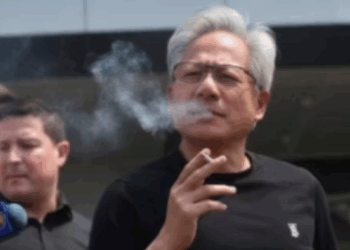California Gov. Gavin Newsom has signed the long-anticipated “Responsible Gun Manufacturing Act,” Assembly Bill 1127, a law that may now trigger a major challenge under the Second Amendment. The law banned the Glock semi-automatic handguns that are a favorite of American gun owners, including former Vice President Kamala Harris.
The law constitutes one of the most ambitious gun bans since the Supreme Court ruled in District of Columbia v. Heller (2008) that gun ownership is an individual right.
At the time, Justice Antonin Scalia stressed that the Second Amendment protects all types of firearms “in common use at the time” for “lawful purposes like self-defense.”
Gun control advocates have been chipping away at this concept by arguing that a variety of popular weapons, such as the AR-15, cannot be considered “in common use at the time” of the ratification.
Scalia, however, joined Justice Clarence Thomas in 2015 in a dissent in the denial of certiorari in Friedman v. Highland Park, involving a local ban on semi-automatic firearms. Thomas wrote that “several Courts of Appeals… have upheld categorical bans on firearms that millions of Americans commonly own for lawful purposes” and that such rulings are “noncompliance with our Second Amendment precedents.”
Thomas noted that such rulings suggested that states could ban “AR-style semiautomatic rifles” even though an “overwhelming majority of citizens who own and use such rifles do so for lawful purposes, including self-defense and target shooting. Under our precedents, that is all that is needed for citizens to have a right under the Second Amendment to keep such weapons.”
In the case of the AR-15, an estimated one in 20 Americans own such weapons. The Glock is even more popular. In 2021 alone, industry data shows that Glock produced 581,944 handguns with another 465,117 in 2022. It is also the weapon of choice for an estimated over 65 percent of law enforcement agencies.
Notably, we previously discussed how Vice President Kamala Harris made a less-than-convincing pitch to gun owners during her presidential run after years of calling for gun bans. She hailed her Glock as a cherished companion. As it became apparent that Harris was losing men generally, the campaign made ham-handed efforts to reinvent Harris. In a softball interview with Oprah, Harris declared that she is a gun owner and “if somebody breaks into my house, they’re getting shot.”
When liberals like CBS’s Bill Whitaker expressed shock at her new gun-toting persona on the campaign trail, he asked if she actually fired it. Harris then did her best Rooster Cogburn, who noted “Well a gun that ain’t loaded, ain’t much good for nuthin.”
When she was the San Francisco District Attorney, Kamala Harris was one of the signatories on the District Attorneys’ amicus brief in District of Columbia v. Heller, in support of the handgun ban.
It convinced no one.
The California law will now take effect on July 1, 2026, “[banning] the sale of new Glock-brand pistols and Glock-style clones.” In my view, it is unconstitutional under prior Supreme Court precedent.
Democrats previously called for banning “Glock switches” that can be affixed to the rear of a Glock slide to make the pistol shoot full auto. However, such switches are already unlawful. They are now going after the gun itself, confirming the objections of gun rights groups that such early bans were moves to lay the foundation to ban semiautomatic weapons generally.
That seems borne out by the language of the bill. The text of AB 1127 says:
“A ‘machinegun-convertible pistol’ as any semiautomatic pistol with a cruciform trigger bar that can be readily converted by hand or with common household tools into a machinegun by the installation or attachment of a pistol converter, as specified, and “pistol converter” as any device or instrument that, when installed in or attached to the rear of the slide of a semiautomatic pistol, replaces the backplate and interferes with the trigger mechanism and thereby enables the pistol to shoot automatically more than one shot by a single function of the trigger.”
The legislation makes repeated reference to any weapon that can be “equipped with a pistol converter.” Thus, even though the Glock switches are unlawful, criminals still use them and thus the gun itself falls under this category as a “machine-gun convertible” weapon.
The Supreme Court has fueled these laws by repeatedly turning down review of bans. States like Illinois outlawed some of the most commonly used rifles and magazines in America. In Bevis v. City of Naperville, the Seventh Circuit overturned the district court’s preliminary injunction against enforcement of the ban on the basis that the plaintiffs were unlikely to prevail.
While various Supreme Court Justices have expressed disagreement with Bevis, the Court refused to take up the case. However, Justice Kavanaugh said that the Court is likely to grant certiorari “in the next Term or two.”
California may have just filled that pledge.
Loading recommendations…


















